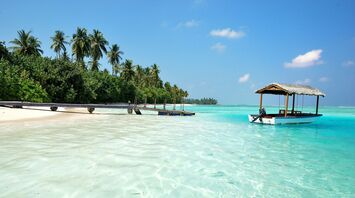Maldives Bans Israeli Citizens, Sparking International Controversy

The Maldives has recently implemented a ban on entry for Israeli citizens, a decision that has drawn significant international attention. The new policy was enacted in conjunction with a fundraising initiative for the United Nations Relief and Works Agency (UNRWA), an organization that operates in Gaza and has had employees implicated in the October 7th terrorist attacks.
This policy has raised numerous questions and criticisms. Critics argue that if the Maldives were genuinely concerned about the Palestinian plight, they would not exclude Israeli citizens, 21% of whom are Palestinian. They suggest that allowing Israeli tourists could potentially provide economic benefits that could be redirected to aid Palestinians in Gaza. However, there's skepticism regarding the efficacy of such aid, given accusations that Hamas frequently diverts humanitarian resources for its own use.
Interestingly, the Maldives has not extended similar bans to other controversial entities or nations. For example, Hamas leaders residing in Qatar and passport holders from Syria or Sudan have not been subjected to similar restrictions. This selective ban appears to target Israeli citizens specifically, leading to accusations of anti-Semitism.
Despite being a strictly Sunni Muslim country, the Maldives relies heavily on tourism and accommodates practices typically forbidden under Islamic law, such as the consumption of alcohol and immodest dress, by confining these activities to designated "uninhabited areas." This pragmatic approach to tourism contrasts sharply with the rigid stance on Israeli passports, highlighting potential inconsistencies in the country's policies.
The ban has also not been accompanied by any condemnation of Hamas' controversial tactics, such as using human shields or embedding combatants in civilian areas. This selective censure underscores the political motivations behind the Maldives' latest policy decision.
The international community is watching closely to see how this ban will affect relations and tourism in the Maldives, as well as its broader implications for Middle Eastern geopolitics. The policy marks a significant stance by the Maldives, one that has sparked debate and will likely continue to provoke strong reactions globally.



















